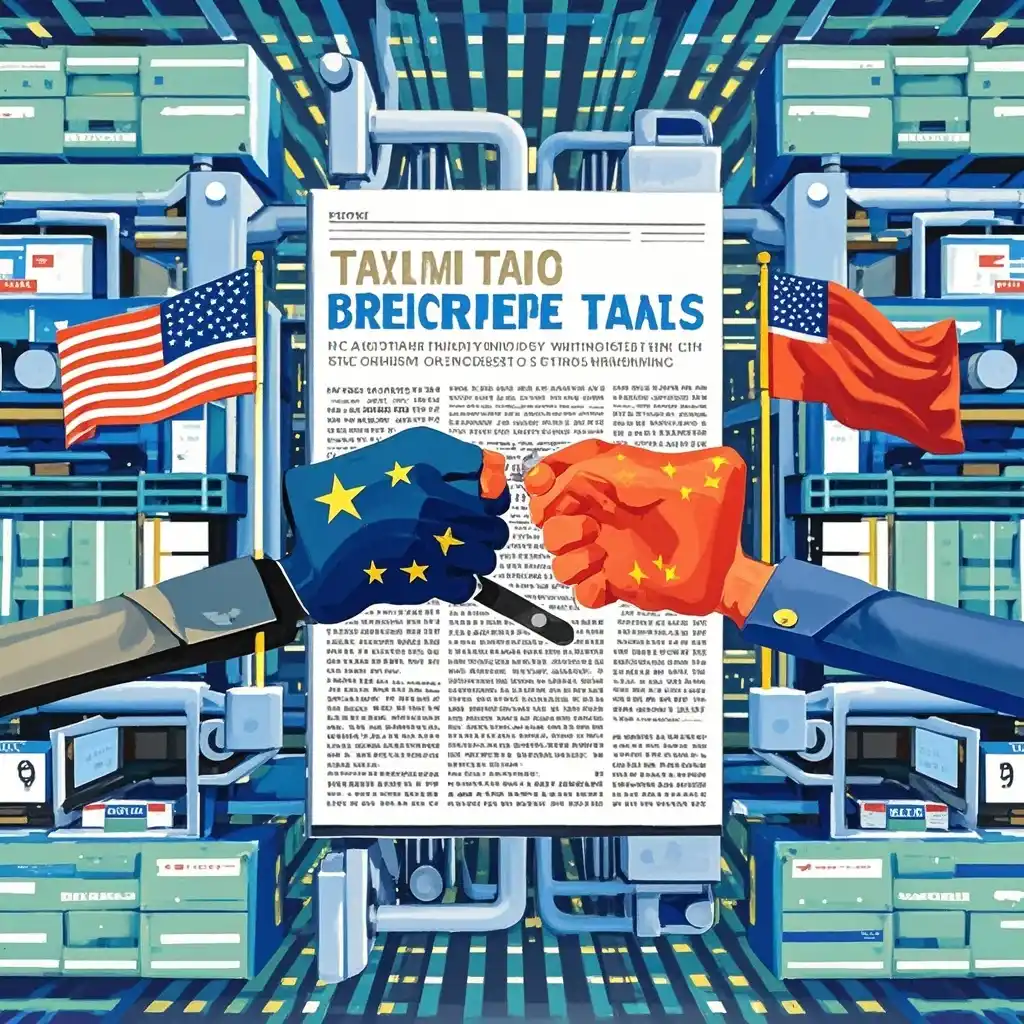

How Diplomatic Negotiations Can Break Down Tariff Barriers for Cross - border E - commerce Enterprises
In the era of globalization, cross - border e - commerce has emerged as a significant force in international trade. However, tariff barriers often pose substantial challenges to the growth and development of cross - border e - commerce enterprises. Against this backdrop, diplomatic efforts have the potential to play a crucial role in alleviating the impact of tariffs on e - commerce.
1. Background
Cross - border e - commerce has revolutionized the way businesses operate globally. It allows consumers to access a wide range of products from different countries with relative ease. However, tariffs can significantly increase the cost of goods for both consumers and e - commerce enterprises. For example, a small - scale cross - border e - commerce business that imports unique handicrafts from a developing country may face high tariffs when entering developed markets. These tariffs are not only based on economic considerations but are also influenced by political and trade - protectionist factors in some cases. As a result, the final price of the products may become uncompetitive, reducing the market share and profit margins of the e - commerce enterprise.
2. The Role of Diplomatic Negotiations
Diplomatic negotiations can have a multi - faceted impact on breaking down tariff barriers for cross - border e - commerce. Firstly, through diplomatic channels, countries can engage in bilateral or multilateral trade talks. These talks can lead to the establishment of preferential trade agreements (PTAs). For instance, the Comprehensive and Progressive Agreement for Trans - Pacific Partnership (CPTPP) is an example of a multilateral agreement that reduces tariffs on a wide range of goods traded among its member countries. This has benefited cross - border e - commerce enterprises by making it more cost - effective to source and sell products within the CPTPP region.
Secondly, diplomatic negotiations can help in resolving trade disputes that often lead to the imposition of additional tariffs. When two countries have a trade conflict, diplomatic efforts can work towards finding a middle ground. For example, the long - standing trade disputes between the United States and China have had a significant impact on cross - border e - commerce. Through diplomatic negotiations, both sides can gradually reduce tariffs imposed during the disputes, which will be a great relief to cross - border e - commerce enterprises that rely on the trade between the two countries.
3. Strategies in Diplomatic Negotiations
One important strategy is the use of economic diplomacy. Countries can highlight the mutual economic benefits of reducing tariff barriers for cross - border e - commerce. By presenting data on how increased cross - border e - commerce can boost employment, economic growth, and innovation in both countries, diplomatic negotiators can build a strong case for tariff reduction. For example, if a developed country imports a large amount of consumer electronics from an emerging economy through cross - border e - commerce, the emerging economy can show how reducing tariffs can lead to more affordable electronics for the developed country's consumers, while also increasing the market share and profitability of the e - commerce enterprises in the emerging economy.
Another strategy is building coalitions. In diplomatic negotiations, countries can form groups with similar interests in promoting cross - border e - commerce. These coalitions can have a stronger voice in international trade negotiations. For example, a group of small and medium - sized economies that are highly dependent on cross - border e - commerce can band together to advocate for lower tariffs in global trade forums.
4. Summary
In conclusion, diplomatic negotiations play a vital role in breaking down tariff barriers for cross - border e - commerce enterprises. The background of tariff - imposed challenges on e - commerce calls for diplomatic interventions. The role of diplomatic negotiations in establishing PTAs and resolving trade disputes cannot be underestimated. By employing strategies such as economic diplomacy and coalition - building, countries can work towards a more favorable tariff environment for cross - border e - commerce. This will not only benefit the e - commerce enterprises in terms of cost - reduction and market expansion but also contribute to the overall growth of international trade and economic globalization. It is essential for all stakeholders, including governments, e - commerce enterprises, and international organizations, to recognize the importance of diplomatic negotiations in this regard and actively support and participate in relevant efforts.